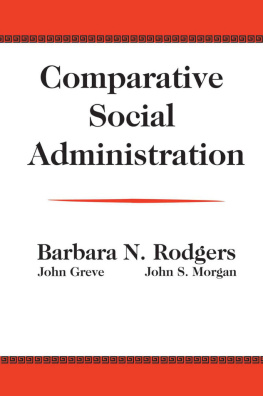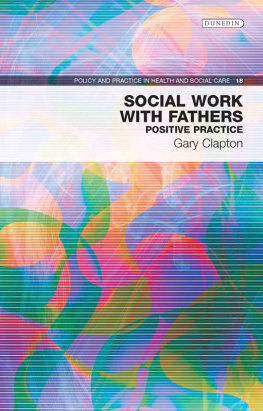
On the Principles of Social Gravity
How Human Systems Work,
From the Family to the United Nations
Tobore Tobore
Revised E-book Edition
Critical Perspectives on Social Science
Copyright 2018 Vernon Press, an imprint of Vernon Art and Science Inc, on behalf of the author.
All rights reserved. No part of this publication may be reproduced, stored in a retrieval system, or transmitted in any form or by any means, electronic, mechanical, photocopying, recording, or otherwise, without the prior permission of Vernon Art and Science Inc.
www.vernonpress.com
In the Americas: Vernon Press 1000 N West Street, Suite 1200, Wilmington, Delaware 19801 United States | In the rest of the world: Vernon Press C/Sancti Espiritu 17, Malaga, 29006 Spain |
Critical Perspectives on Social Science
Library of Congress Control Number: 2017948825
ISBN: 978-1-62273-397-2
Product and company names mentioned in this work are the trademarks of their respective owners. While every care has been taken in preparing this work, neither the authors nor Vernon Art and Science Inc. may be held responsible for any loss or damage caused or alleged to be caused directly or indirectly by the information contained in it.
Cover design by Vernon Press, using elements selected by freepik
Table of Contents
Preface
Everywhere I go, I see the same problems; From marriages, health care systems, to the economy, everything seems to fail. I have never stopped wondering why.
I remember my first exposure to the political system of Nigeria, when I was a little boy, because of the riots and mass strikes that engulfed my hometown of Warri in 1989. Soon after, a coup dtat brought in the military junta of General Sani Abacha. The end of military rule changed little, as corruption and nepotism still dominated the political system. As much as I detested the political system in Nigeria, I learned firsthand from my travels around the world that political systems are about the same everywhere.
In 1997, my dad, my little brother and I fled our house to escape the ethnic war that was engulfing Warri. We had driven only a mile before we met the first roadblock mounted by armed militias who demanded to know our tribe. My little brother and I were too scared to speak. My dad, unsure whether the militias were from our tribe, shouted, Urhobo! Urhobo! Luckily the militias were Urhobo, and they allowed our car to pass. We made it the through several other militia roadblocks and finally arrived safely at our house on the outskirts of town. Even today, the ethnic divisions that caused the crisis in Warri still exist and can easily erupt at any time. Across Nigeria, where I spent most of my childhood, ethnic and religious conflicts are common. From conflict between Ile-Ife and Modakeke in the southwest to religious conflicts in the north of the country, many people have lost their lives and property.
During my medical studies in Russia, my classmates were mostly from Sri-Lanka where there was an ongoing civil war between the Tamil Tigers and the government . The tensions between the Tamils and Sinhalese members of my group reminded me of the same problems I experienced in Nigeria. A few weeks after my arrival in Russia, I was the victim of a xenophobic attack that almost caused me my life. I have received unwelcome treatment in many other parts of the world I have lived in and visited and observed racial and ethnic divisions in America. These experiences have taught me that human hostility towards the other is not unique to Nigeria, Russia, Sri-Lanka or America; it is the same everywhere.
Over the years, I have met young people with crushing student debt and meager salaries, inadequate to repay their loans. This touched me deeply. Over the course of my travels, I have seen the dramatic effects of different types of immigration policy. My travels around the world have also given me a unique insight into the strengths and weaknesses of different healthcare systems. I have seen people die in Nigeria because of their inability to come up with a mere $150 to pay for an operation. I have seen the positive and negative effects of free healthcare in the United Kingdom, Russia, and Malaysia. In America, I have seen sick people delay medical treatment because of the cost of care.
In Nigeria, the criminal justice is broken. Police and military officers act with impunity. The rich can buy their way while the poor languish behind bars for the same crime. In the United States, I see the same problems with the justice system.
From these experiences and much more, I started to see certain patterns in the way human or social systems work. I realized that just like everything in the universe, some fundamental principles governed all such systems, and these principles determine their success or failure, from the family to the United Nations . My purpose in writing this book is to explain these principles and provide a fresh way for people to look at the different systems we have created. My application of these principles to select systems in America is intended to demonstrate their effect and show that human systems can only thrive if we adhere to them.
Introduction to Social Gravity
The family, healthcare system, Social Security , schools, the military, community, nation-state, criminal justice system, and the United Nations all have one common denominator; they are institutions created of and for human beings. So, although they may look very different because of their tremendous range in size and purpose, the factors that influence their success and failure are the same. These systems can all be categorized as human or social systems.
In the United States, many social systems appear broken. The political, economic, higher education, criminal justice, and higher education, healthcare systems all seem to be showing signs of strain.
On the political front, politicians from both sides of the aisle seeking office shout the same slogans of change and promise of reforms, only to maintain the status quo once elected. The Citizens United ruling, released in January 2010, which eliminated the corporate and union ban on making independent expenditures and financing electioneering communications, only helped reinforce the idea that the political system is rigged in favor of the rich and powerful (Liptak, 2010). The rise of populist politicians in the 2016 election cycle, like candidate Senator Bernie Sanders and the electoral victory of Donald Trump, is a testament to the deep sense of frustration many Americans feel towards Washingtons elites and the entire political system.
On the economic front, ordinary Americans are struggling with stagnant wages and debts. The middle class is shrinking, and inequality is on the rise (Pew Research Center, 2016). According to the Organization for Economic Co-operation and Development (OECD ), in the United States, the average income of the richest 10% is almost 20 times as large as for the poorest 10% while the OECD average is 9.6. The United States is now the most unequal of all Western nations, with significantly less social mobility than Japan, Australia, New Zealand, Canada and Switzerland ( Frster and Levy 2004). Globalization and trade agreements have changed the job market perhaps forever, with mixed results. The Occupy movement that began on September 17, 2011, is evidence that the current economic paradigm is not working well for everyone.










